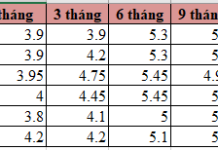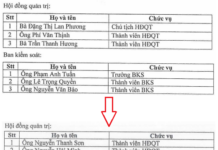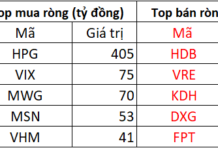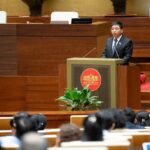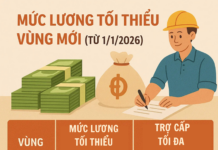Proposal to Exempt Numerous Projects from Investment Approval Procedures
On November 11th, under the chairmanship of National Assembly Chairman Trần Thanh Mẫn and the moderation of Vice Chairman Nguyễn Khắc Định, the National Assembly heard the Government’s Report and the Review Report of the Economic and Financial Committee on the amended Investment Law.
Presenting the Government’s Report on the amended Investment Law, Minister of Finance Nguyễn Văn Thắng stated that, regarding investment approval procedures, Conclusion No. 194 dated September 20, 2025, issued by the Politburo, directed the continued regulation of investment approval procedures, narrowing down the scope of projects requiring such procedures.
Based on this, Minister Nguyễn Văn Thắng emphasized that the draft law has been refined to:
First, narrow down and clarify the scope of projects requiring investment approval. Approval is only granted for infrastructure development projects in critical, sensitive sectors such as seaports, airports, telecommunications, and press publishing; projects involving land and sea area usage; and projects impacting the environment or located in areas affecting national defense and security.
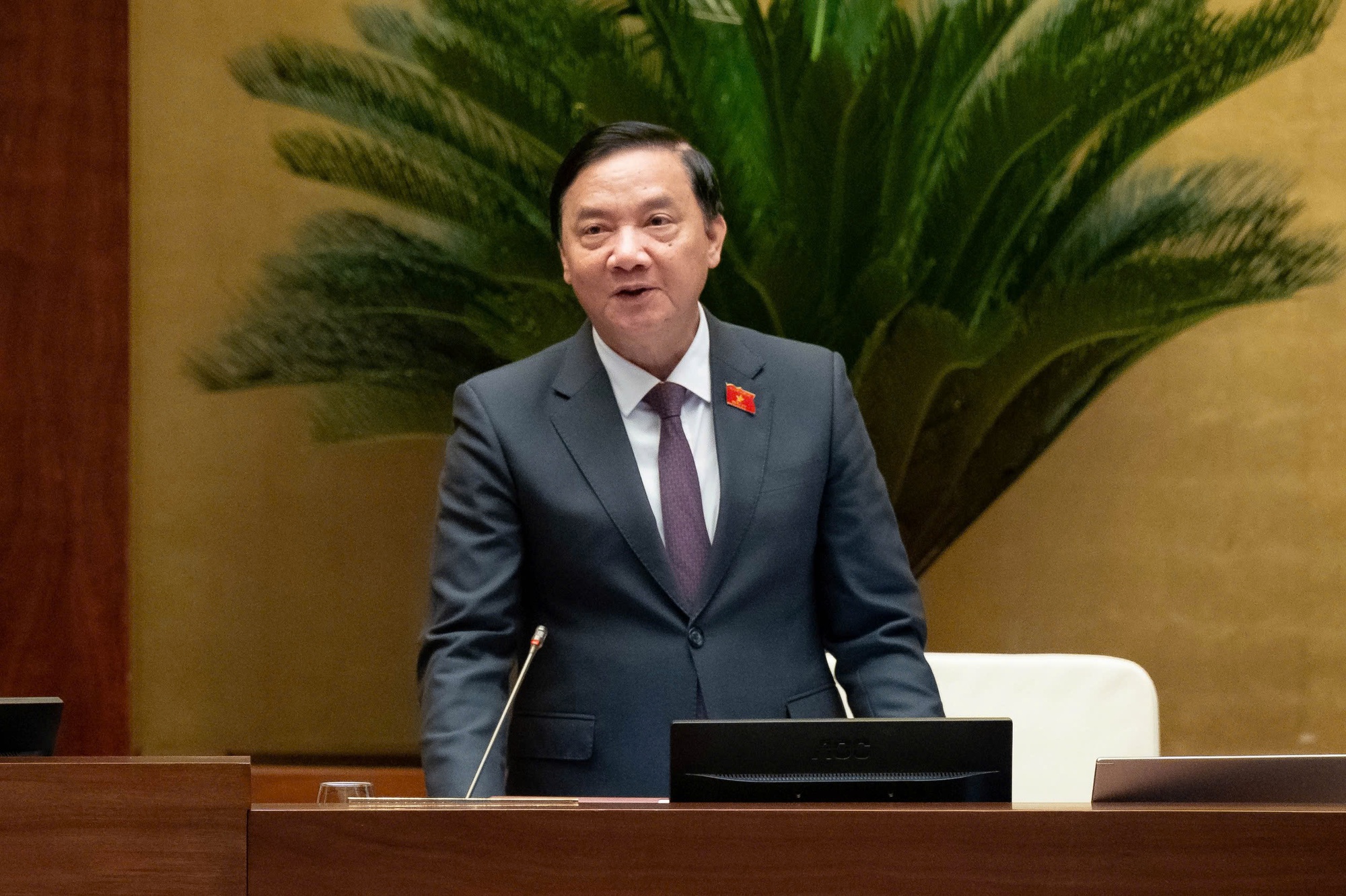
Vice Chairman of the National Assembly Nguyễn Khắc Định moderating the Session
Additionally, investment approval procedures are not required for commercial housing projects, urban areas where investors are selected through auctions or bidding; projects that have won mineral exploitation rights through auctions; technical infrastructure projects for industrial clusters; and investment projects involving land allocation or lease through land use right auctions or investor selection bidding, except for critical projects significantly impacting the economy and society, such as airports, seaports, and industrial zones.
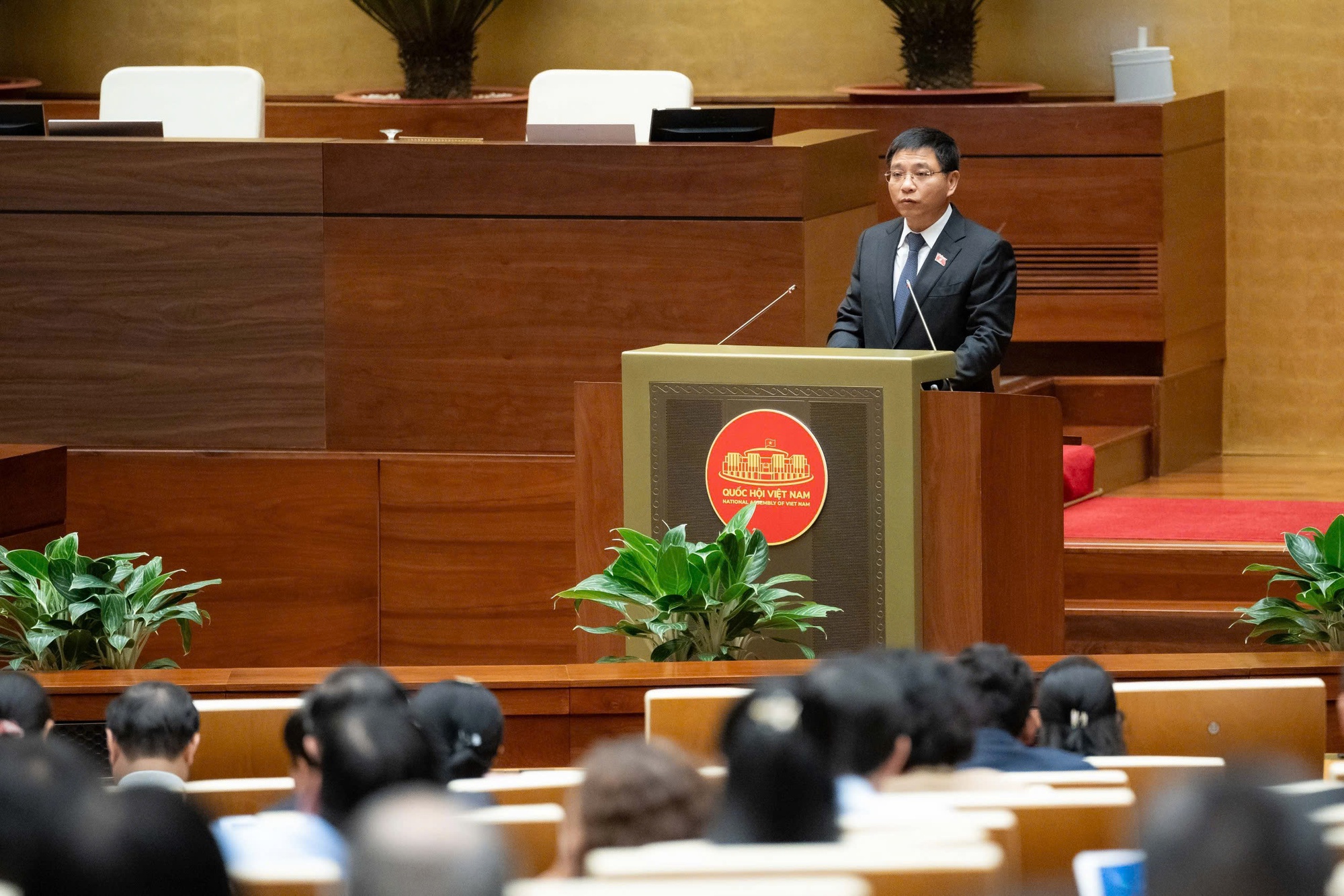
Minister of Finance Nguyễn Văn Thắng presenting the Government’s Report
Enhancing Decentralization and Authorization in Investment Approval
Second, continue to enhance decentralization and authorization in investment approval for the Prime Minister and Chairpersons of Provincial People’s Committees for critical projects requiring special mechanisms and policies, differing from the provisions of laws, ordinances, and National Assembly resolutions. The Government approves investment after obtaining the consent of the National Assembly Standing Committee.
Third, the draft law further simplifies investment approval procedures by omitting some unnecessary appraisal content at the investment approval stage.
Regarding the establishment of foreign-invested economic organizations, Minister Nguyễn Văn Thắng stated that the draft law allows foreign investors to establish enterprises before obtaining an investment registration certificate. “This is a new regulation aimed at fundamentally reforming investment procedures for foreign investors.”
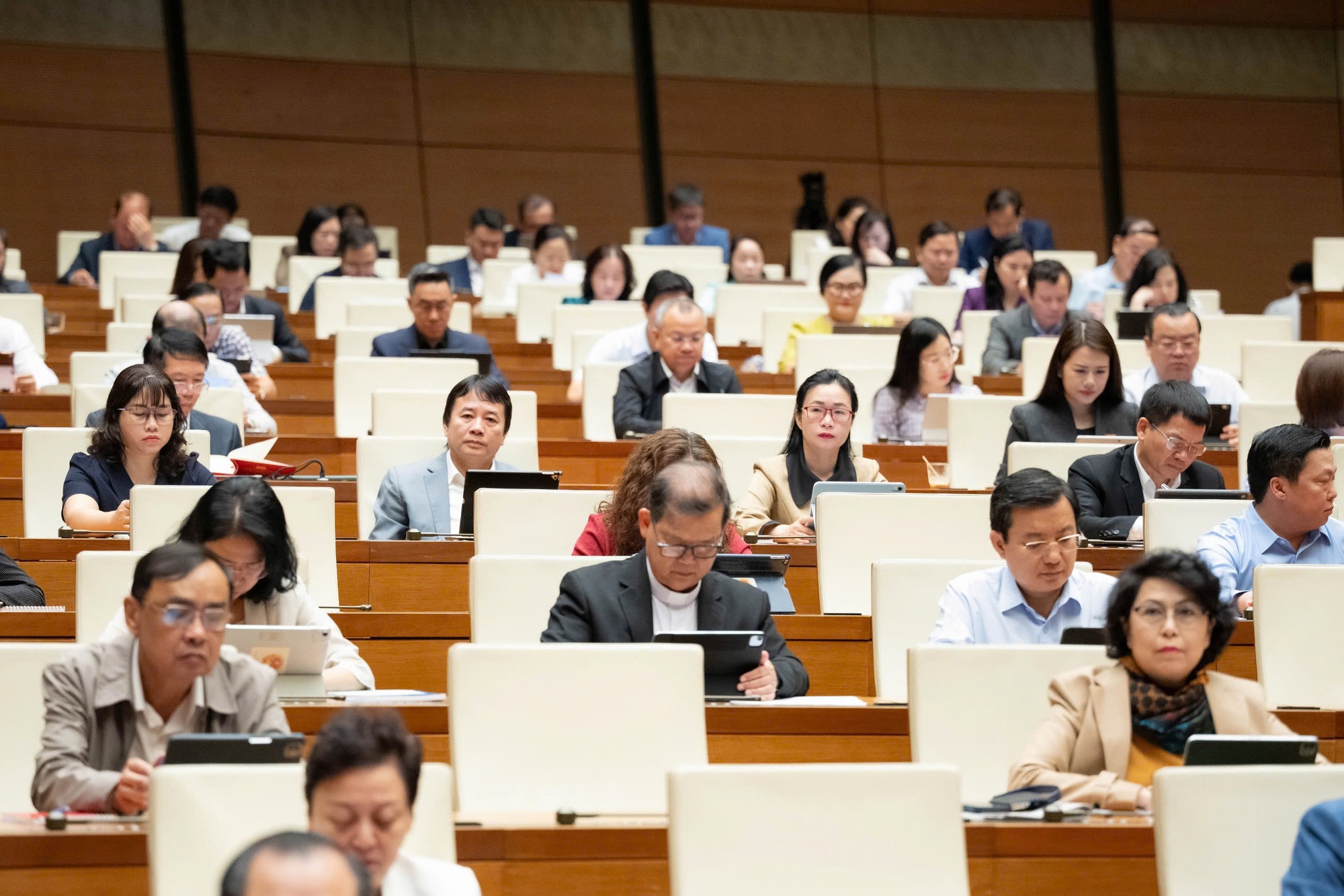
Delegates attending the Session
“Furthermore, the draft law expands the scope of special investment procedures (green channel) to allow projects in industrial zones, export processing zones, high-tech zones, concentrated digital technology zones, free trade zones, and functional zones within economic zones to follow special investment procedures without industry or sector restrictions, except for major projects like airports and seaports,” added Minister Nguyễn Văn Thắng.
Regarding the Railway Law, the amended draft law supplements provisions on asset transfer for railway projects upon expiration, as per point C, clause 3, Article 24 of the Railway Law, allowing investors to extend project operation periods under investment laws for national and local railway lines. All project assets are transferred to the State upon expiration, with the State compensating investors as per regulations.
“Renaming Section 2, Chapter 2 of the Railway Law to ‘Investment in National and Local Railway Construction’ to attract private investment in critical railway projects, including urban and local railway lines,” emphasized Minister Nguyễn Văn Thắng.
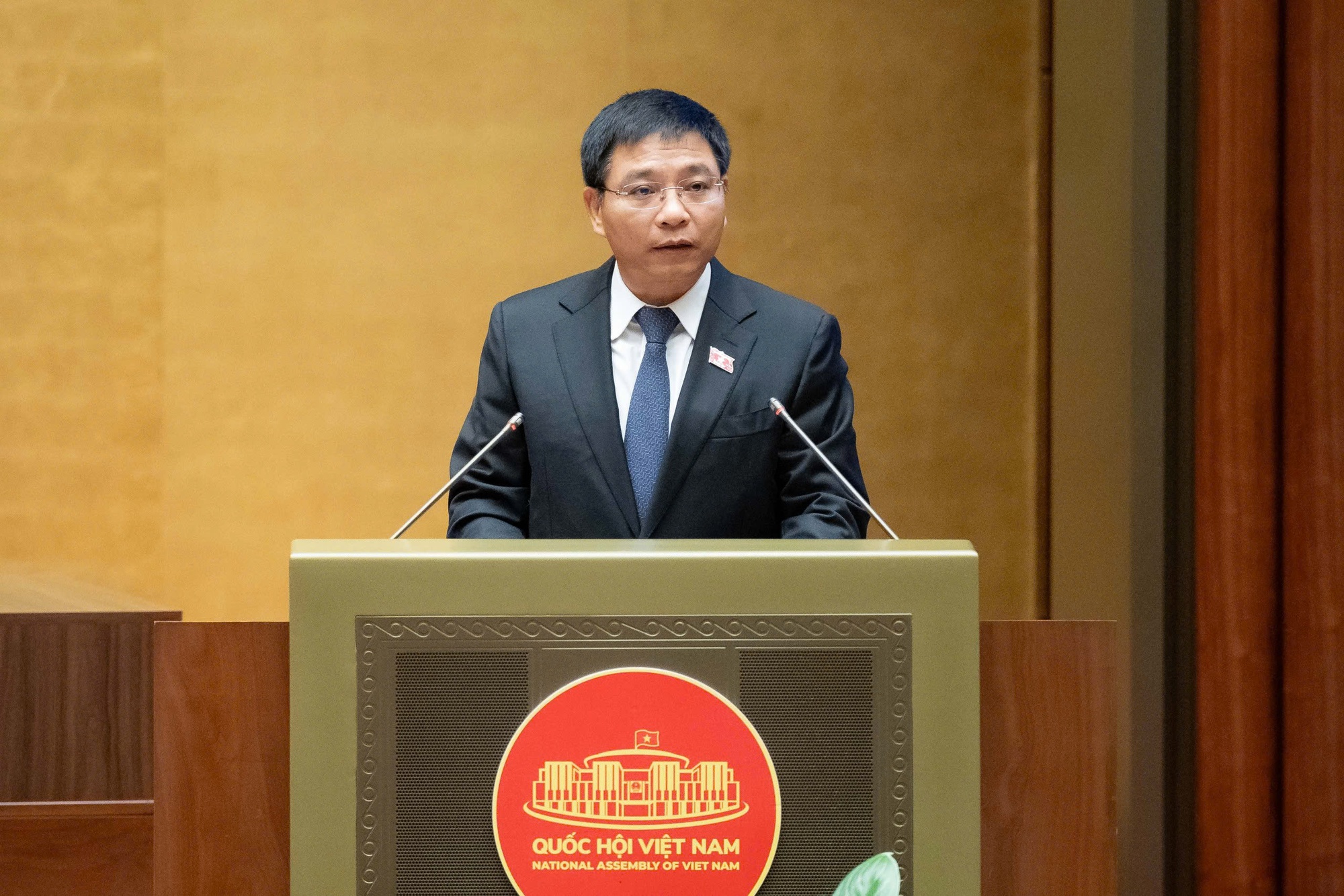
Minister of Finance Nguyễn Văn Thắng presenting the Government’s Report
Proposing to Cut 25 Conditional Business Investment Sectors
The draft law adds provisions to resolve issues in project transfers where the remaining project duration does not meet financial or business investment plans of the transferee investor.
This regulation is based on Conclusion No. 194 dated September 20, 2025, by the Politburo, facilitating new investors to avoid waste.
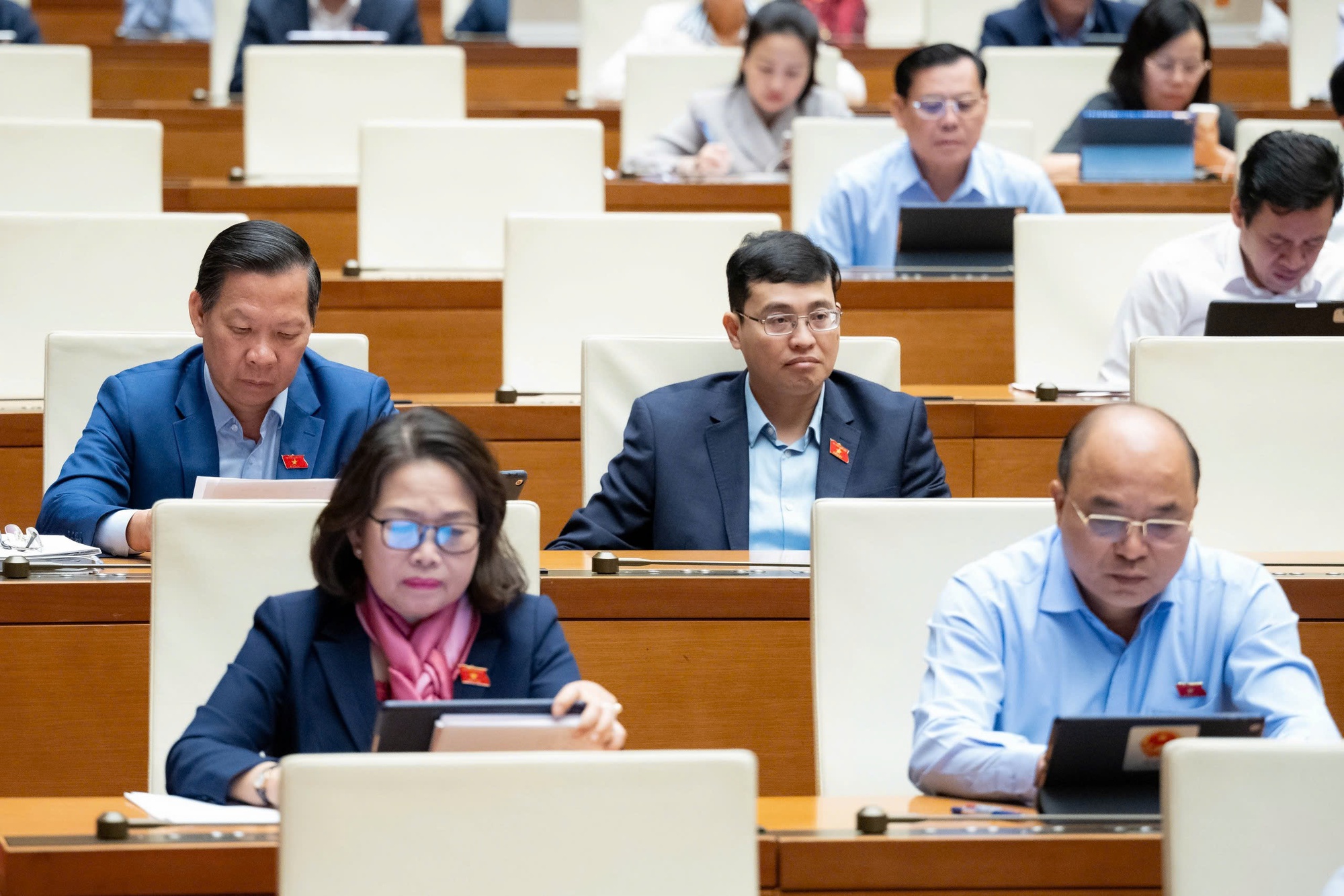
Delegates attending the Session
Minister Nguyễn Văn Thắng stated that for conditional business investment sectors, the draft law cuts 25 sectors, including:
1) Forensic expertise in finance, banking, construction, antiquities, artifacts, and copyright;
(2) Accounting services;
(3) Tax procedure services;
(4) Rice exports;
(5) Frozen food temporary import and re-export;
(6) Labor leasing services;
(7) Automobile maintenance and repair services;
(8) Inland waterway vessel construction, conversion, repair, and restoration services;
(9) Seagoing vessel construction, conversion, and repair services;
(10) Investment project management consulting services;
(11) Crematorium management and operation services;
(12) Construction activities by foreign contractors;
(13) Data center services;
(14) Overseas study consulting services;
(15) Breeding and cultivation of CITES-listed wild flora and fauna, and endangered, precious, and rare forest and aquatic species;
(16) Breeding of common forest animals;
(17) Export, import, re-export, transit, and inland receipt of CITES-listed and endangered species samples;
(18) Export, import, and re-export of artificially bred or cultivated samples of CITES-listed and endangered species;
(19) Processing, trading, transportation, advertising, display, and storage of CITES-listed and endangered species samples;
(20) Animal and animal product quarantine inspection services;
(21) Cosmetic surgery services;
(22) Art performance, fashion show, and beauty/model contest services;
(23) Land information system infrastructure and software construction services;
(24) Land database construction services;
(25) Currency printing and minting activities.
According to the report, conditional business sectors under the 2020 Investment Law primarily use pre-check mechanisms. Some sectors can shift to post-check to reduce market entry barriers, promote business freedom, and implement Resolution No. 66/NQ-CP dated March 26, 2025, on administrative procedure simplification for 2025-2026.
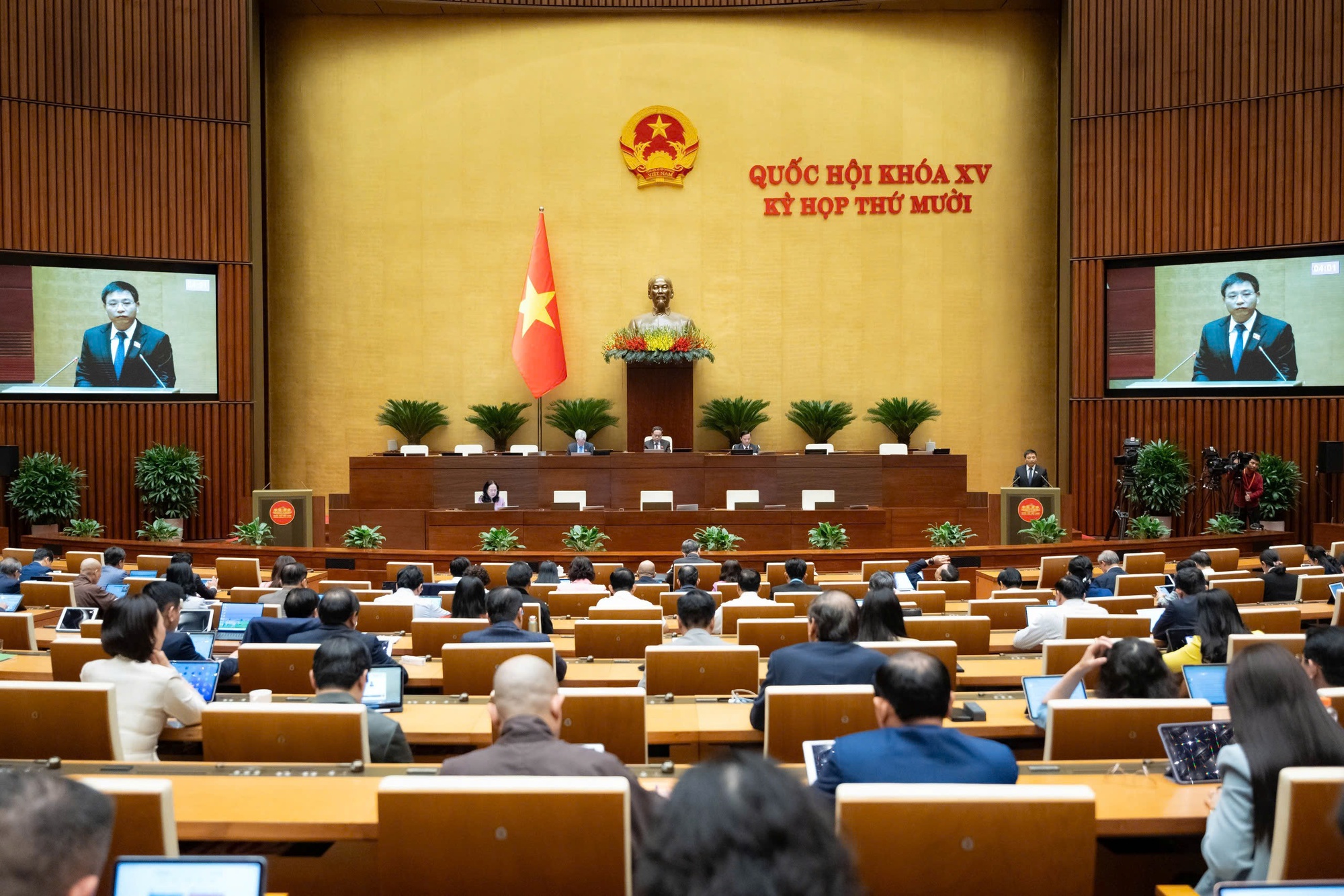
Session Overview
For overseas investment procedures, the Politburo’s Conclusion No. 194 directed simplification. The draft law abolishes overseas investment approval, requiring only investment registration for projects over 20 billion VND or in conditional sectors. Projects under 20 billion VND require foreign exchange registration with the State Bank for fund transfers.
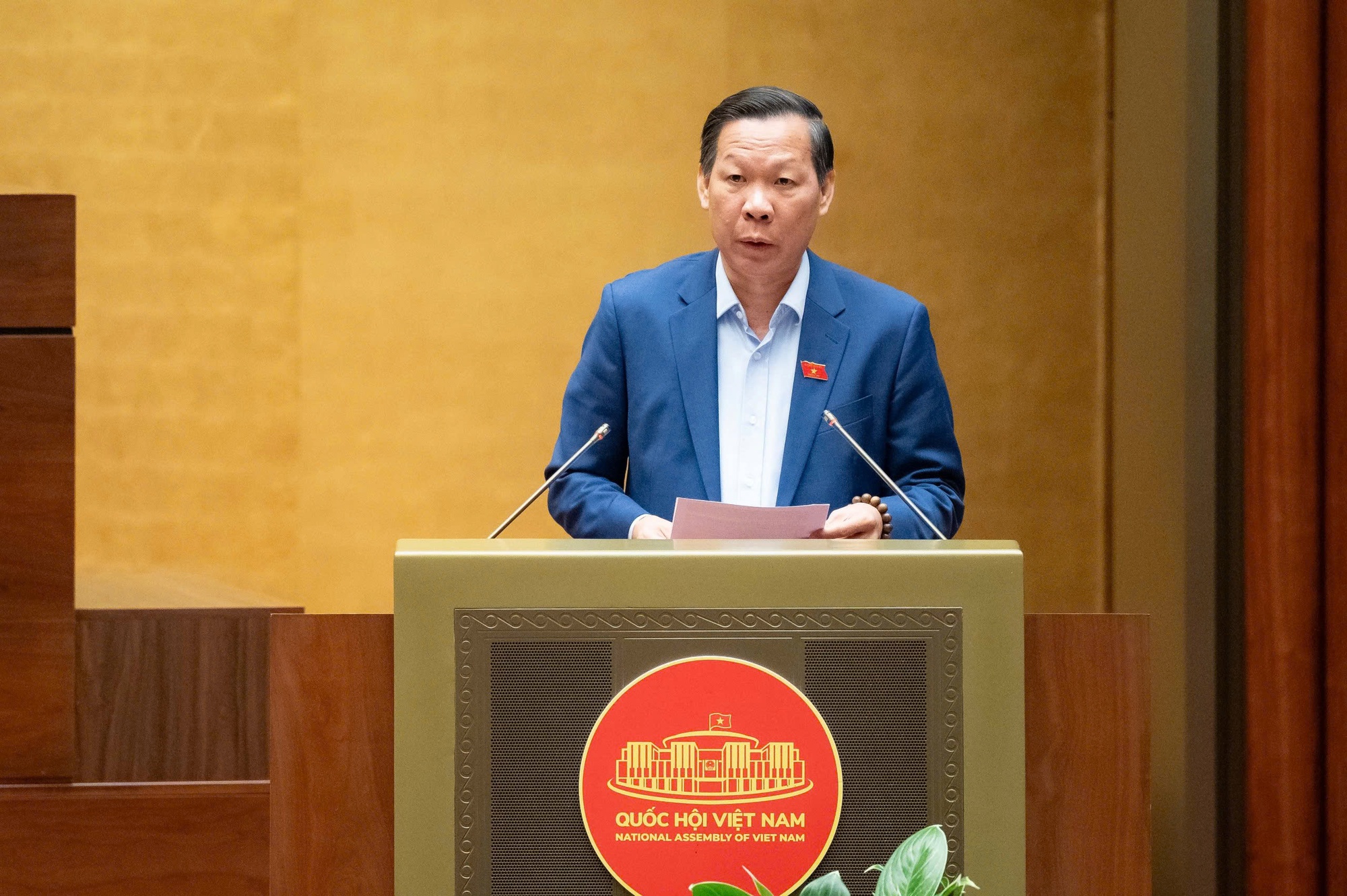
Chairman of the Economic and Financial Committee Phan Văn Mãi speaking
Applying Investment Approval Procedures Only When Necessary
Presenting the Review Report, Chairman Phan Văn Mãi stated that the Committee supports the amendments. Investment approval procedures should be applied only when necessary, with clear criteria and authority, referencing the Public Procurement Law and Public Investment Law.
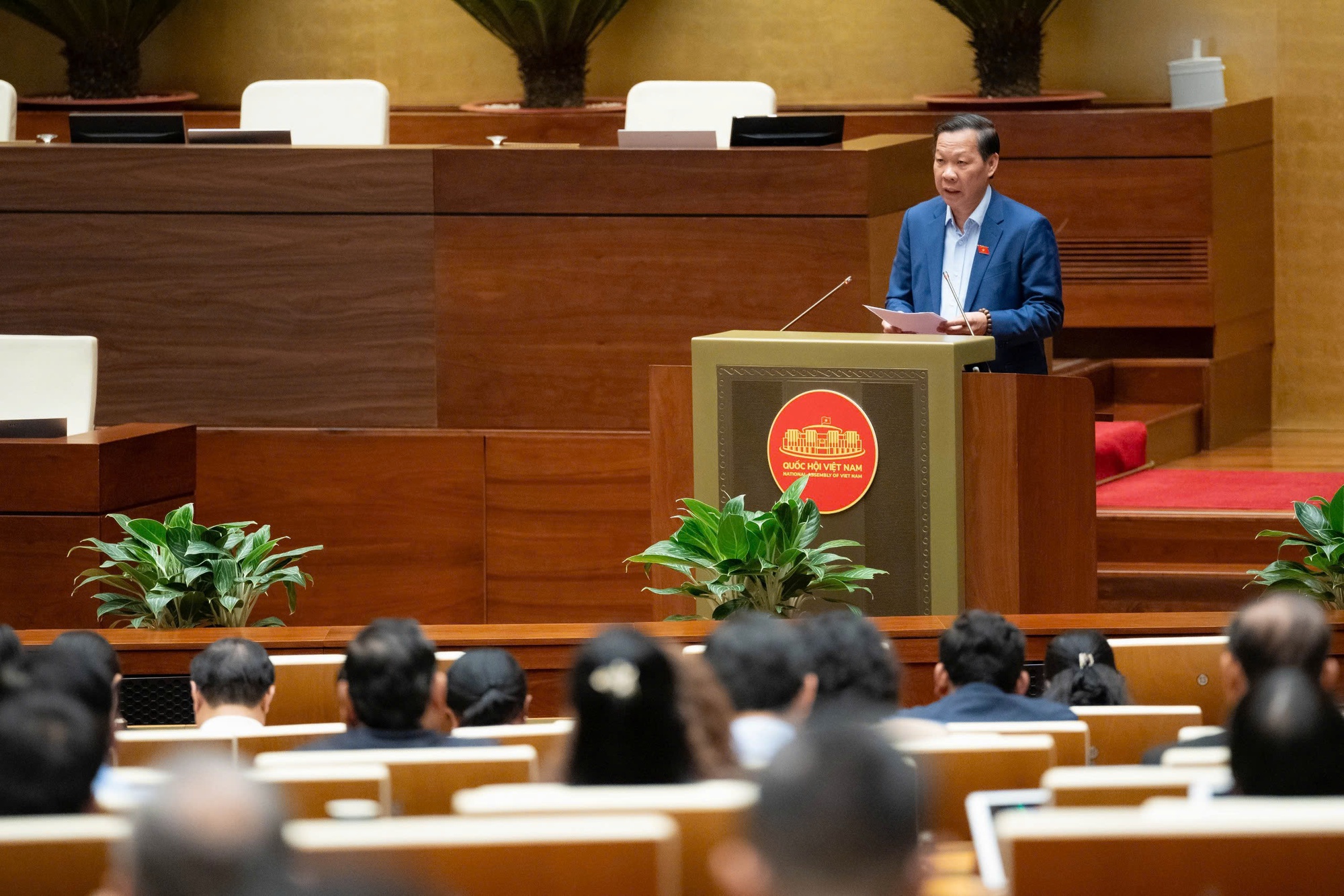
Chairman Phan Văn Mãi speaking
Further Streamlining Conditional Business Sectors
Chairman Phan Văn Mãi proposed further streamlining conditional business sectors, retaining only essential conditions for national defense, security, public order, morality, and health. Distinguish between individual and organizational business conditions, shifting from pre- to post-check.
“The Ministry of Finance should coordinate with relevant agencies to ensure consistency with the Construction Law, E-Commerce Law, and Aviation Law,” he added.
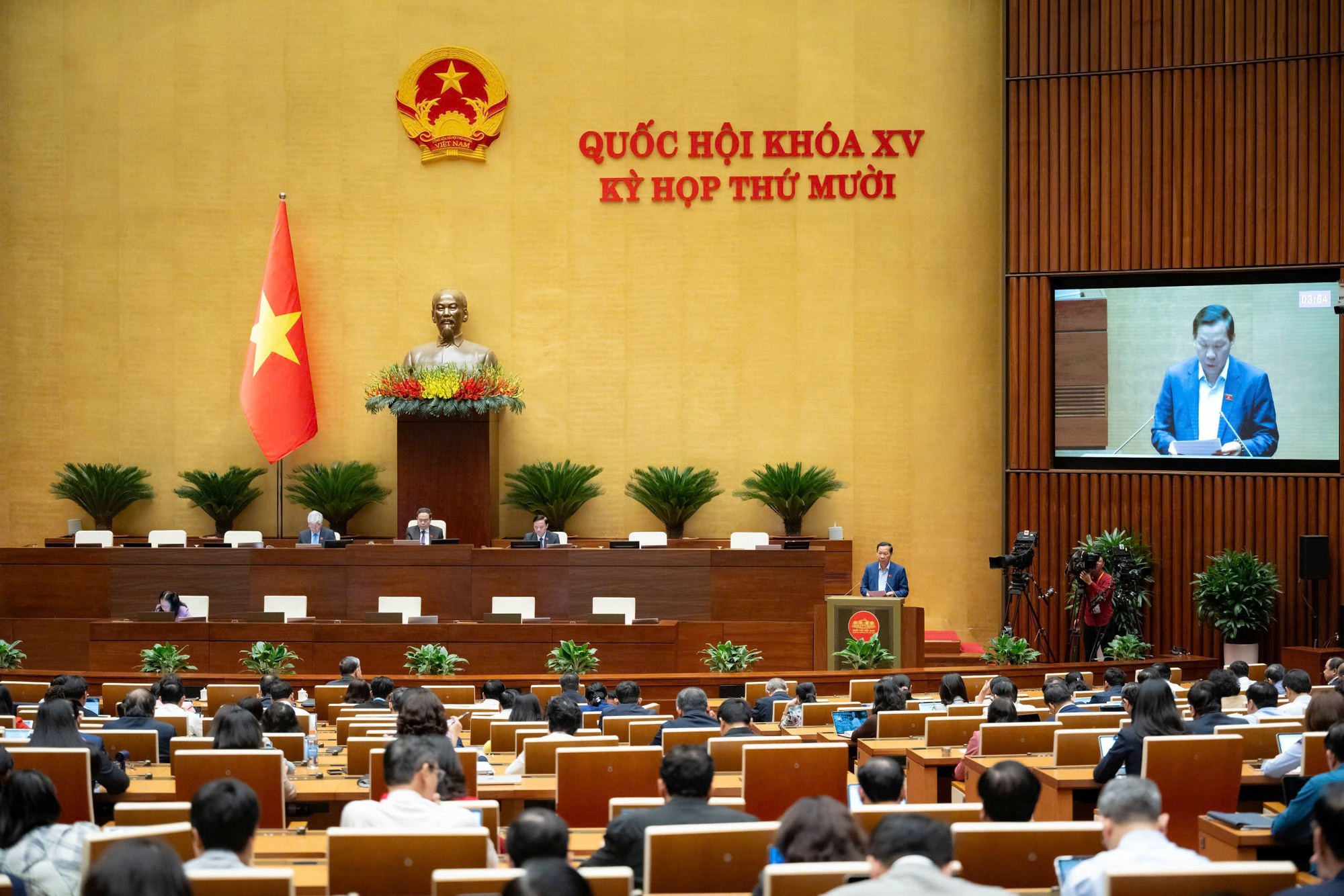
Session Overview
For investment incentives, the Committee proposed clarifying industry prioritization and delegating specific regulations to the Government. Overseas investment management should balance control with administrative reforms, ensuring data linkage with the State Bank for foreign exchange management.
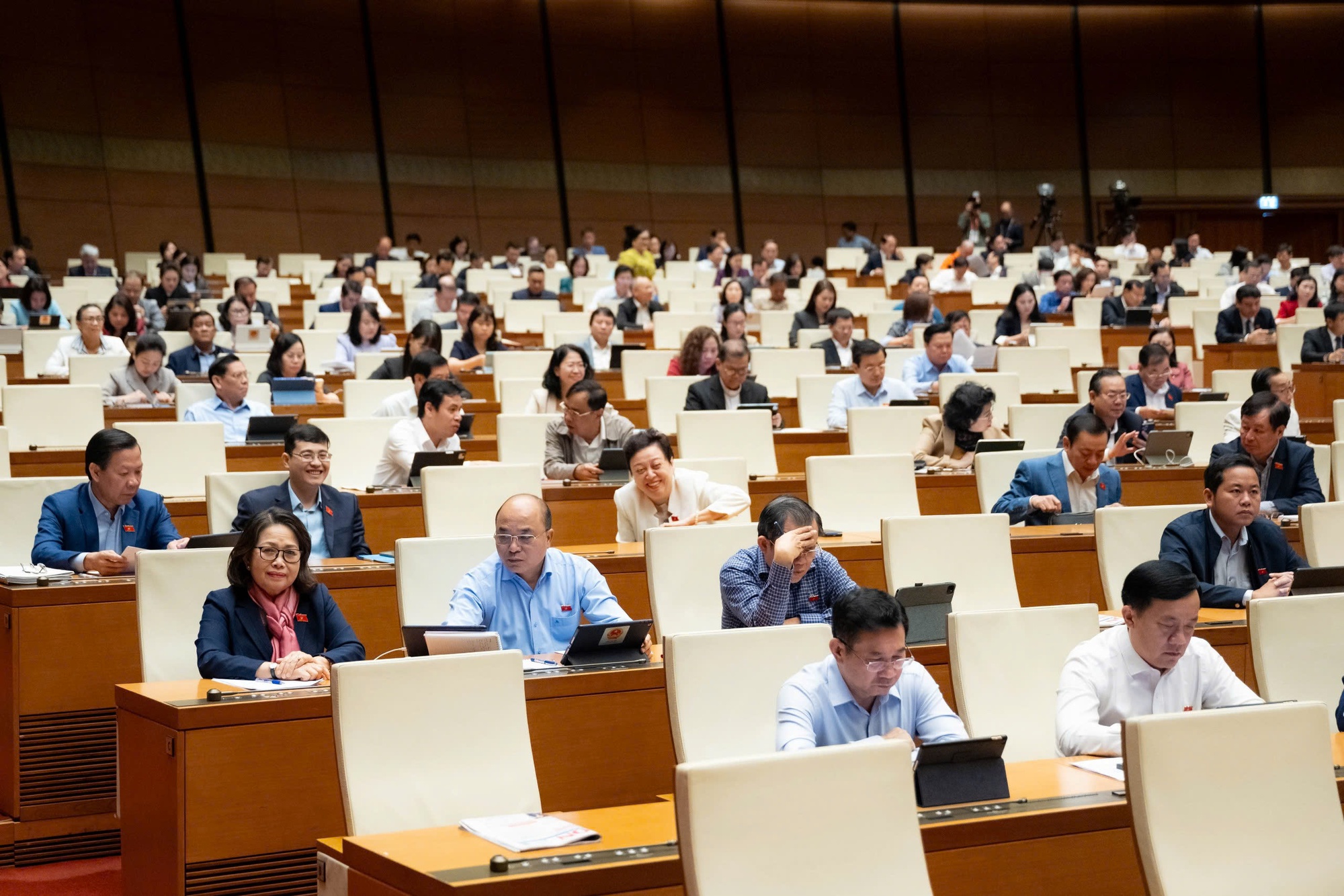
National Assembly Delegates at the Session
For project transfers, clarify applicable cases and unify regulations under the Real Estate Business Law or Investment Law. Railway Law amendments should ensure consistency with the Civil Aviation Law, with appropriate project duration extensions.
Revamped Investment Law: Streamlining Business Procedures with Proposed Cuts and Simplifications
The revised Investment Law has been meticulously crafted to institutionalize the resolutions of the Party, effectively addressing institutional and legal bottlenecks. By streamlining and simplifying investment and business procedures, it empowers both citizens and enterprises, fostering a more conducive environment for growth and development.
China’s $143 Billion Push to Dominate a Critical Global Sector: Massive Investments Span Europe to Asia, Yet Only 25% of Projects Completed
Chinese electric vehicle and battery conglomerates have invested a staggering $143 billion into overseas projects.










